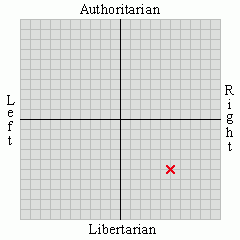When you join a Union part of your membership fee counts as a "Political Levy" and goes towards a "Political Fund".
The following is taken from
DirectGov
Some trade unions maintain a political fund. This is a separate account which the trade union can use to provide financial support for a political party. For example, they could donate to a party or particular politician, produce leaflets in support at an election, or support party conference costs.
You can find out which Political Party, if any, your Union supports by checking "The political fund rules"
A trade union which operates a political fund must have political fund rules. These too have to be approved by the Certification Officer. The trade union’s political fund rules will specify how money is collected for the political fund, and the amount to be paid into the fund by the members who contribute to it.
A trade union must pay for party political activities from its political fund, and must not use money from its other accounts for this purpose.
Once a political fund is established, it is up to the trade union to decide, in-line with its rules, how the money is spent.
If you do not wish to
make this donation pay this levy it isn't a matter of ticking a box. The only way to opt out is to
If you wish to contract out, you must do so in writing. If you ask your trade union’s local office or head office for a form to contract out of political fund payments, they must supply it. You can also ask the Certification Officer for a form.
You can complain
You can make a complaint to the Certification Officer if you think your trade union:
* has spent money from its other accounts on political matters that must be paid for from the political fund
* is still making you contribute to the political fund when you have contracted out of contributing to it
* has excluded you from any trade union benefits because you have contracted out
* has treated you unfavourably compared with other members because you have contracted out
Mrs Rigby's only experience of trying to 'opt out' of paying the levy was years of letters getting lost in the post, it was amazing how terribly careless the Post Office was - recorded delivery solved those problems though. She never met a "Certification Officer", didn't ever know there was such a person.
Why did she decide to opt out? Simple. She doesn't contribute to
any political group or party and doesn't like the idea of anybody else doing it on her behalf, and for them to choose which party gets supported and which doesn't. She was sure all that would have changed, but it seems not.
Oh, and having opted out the union subscription got smaller - until then Mrs R hadn't know how much had been given to the political fund, and even now some unions don't state the amount - Unison does, which is one of the reason's it's been used as an example later on.
It would seem, from the DirectGov information, that Unions choose to support different parties - if they want to. But that isn't entirely true, more especially when looking at the umbrella organisation for all British Trade Unions (see later).
But let's look at one union first. Here are some extracts from Unite's explanation of
"The Political Fund ".
The Political Fund enables us to campaign for or against government policy, whatever the political persuasion of the government of the day. In years to come a Conservative government could be returned to power and it is essential that Unite retains its Political Fund to be able to defend our members against a return of the attacks on employment rights that we remember from the 80s.
It starts off well, but clearly Unite presumes that a not-Labour government will be detrimental to the interests of any employees.
And, actually, Mrs R and the wider Rigby family remember a bit further back than the 80s, we remember trying to get homework done by candlelight, trying to keep warm using imported coal that was mostly cement dust. We remember waiting far too long to bury more than one deceased relative, and we remember the distinct lack of rubbish collections too. We remember the picket lines and the "scab labour" as well, and people being beaten up because they either didn't belong to a union or didn't want to strike because they were reasonably content with their wages, and how some people were angry when Arthur Scargill bought himself a posh bungalow.
We have a strong tradition of campaigning for our members who stand for public office, but we also campaign effectively against the BNP in elections. Without the Political Fund we would be unable to continue that vital work.
Does it say in the union rules that no member of Unite is allowed to be a member of the BNP, does it say nobody is allowed to vote for the BNP?
Isn't is slightly presumptive of
any Trade Union to assume that all members will automatically want to support one particular political party?
Unison is at least up front about it,
saying "All members of the UNISON Labour Link National Committee must be contributors to the UNISON Labour Link fund and paid up individual members of the Labour Party." Although Unison also claims that the
General Political Fund is
"... not affiliated to any political party, but the money in the fund is used to support local campaigns, to give a boost to our big national political campaigns and to pay for political advertising. "
Oh, and Unison says this too
UNISON in the TUC and the Labour Party
UNISON is the largest union in the Trades Union Congress (TUC) and plays an important role in developing policy. It has a big voice too in the Scottish, Welsh and Irish trades union congresses.
To make sure that issues affecting our members are heard in the outside world, UNISON has a political fund. This money - collected from our members - can only be spent on political and social campaigning. Unlike any other trade union, UNISON offers you the choice of two funds to pay into:
* The Affiliated Political Fund works to support the Labour Party
* The General Political Fund campaigns in a non-affiliated way to further the interests of our members.
Remember that thing they say about the TUC - you'll see why later.
But back to Unite, which is where we started, and only because it's a fair example of what other unions say on their websites.
Many Unite members are politically active in their local communities, in their trades councils, as school governors, as councillors, on learning and skills councils, MPs and MEPs. They form a powerful network. The Political Fund ensures we can keep them informed as to our priorities so they can effectively represent Amicus members at the decision making table.
That might explain why so many Unite people have been parachuted into 'safe' Labour parliamentary constituencies - taking away the choice of local people, and local committees, who might actually have preferred to choose their own electoral candidate.
Unite has a powerful voice in the political arena, we ensure our members voices are heard by political parties, employer organisations such as the Institute of Directors and the CBI, think tanks such as the Fabian Society and the Labour Research Department, government and non-government organisations such as the Equal Opportunities Commission ... (and so on, and so on)
Mrs Rigby thinks all too many people are well aware of this, and would be interested to know how much funding strolls round in circles.
Mrs R's memory is a bit rusty, but she's sure she recalls an MP who, when facing charges relating to mishandling his expenses, couldn't understand how it was against the law to take money out of one financial budget and spend it on something else. Or is her memory playing tricks?
Anyhow, back to how that Political Fund is paid for - it's paid for by ordinary union members, some of whom are earning
minimum wage - of £5.80 an hour. Let's see how much they pay their unions.
Staying with Unite as an example, because at least their information is on the website, unlike some of the others. Let's break it down a bit, and see how much, or what proportion, of a person's membership fees goes into the "Political Fund"
Union fees -
Unite charges full-time employees (>21 hours a week; >18 yo) to pay £131.52 a year, or £2.53 a week. Part time employees (over 18 and working less than 21 hours) pay £59.76 pa, or £1.15 a week - even if they only work a couple of hours.
Every single member of Unite, irrespective of the hours they work and irrespective of the level of their Union fee contributes 14p weekly or 51p monthly to the union's Political Fund.
Doesn't seem very much does it? Less than a loaf of bread, less than half a dozen eggs a week.
Over a year the weekly contribution adds up to £7.28 whilst those who pay their fees monthly contribute £6.12 - so the person who prefers to pay weekly contributes more to the political fund than those who pay monthly - presumably administration costs make a difference.
Oh, Unite says in the banner header that it has 2 million members - so that's about, errm, let's average the contribution at £6.70 a year, which is half way between the two figures quoted - it's just guessing that half the membership pay their fees weekly and half of them pay monthly.
£6.70 x 2,000,000 = £13,400,000 - that's 13 million, 4 hundred thousand pounds.
For
one union to spend on political activities.
There are lots of unions, they all collect together in Trades Union Congress -
the TUC, which is that umbrella organisation mentioned at the beginning, and also mentioned by Unison. Here's how it describes itself :
... the national organisation which represents trade unions in Britain. It is made up of 69 unions with a combined membership of nearly 6.7 million workers.(my bold)
Our main role is to act as a voice for working people. We promote the rights and welfare of people at work and campaign for policies which help the unemployed get back into jobs.
Since we were formed in 1868, we have grown in size and stature to become Britain's largest voluntary organisation and one of the biggest trade union centres in the world. The TUC is now one of the best known institutions in British public life.
The TUC is, apparently, a "voluntary organisation" - which many people would think is akin to a charity - even though it developed from the "Labour Representation Committee".
After the 1906 general election there were 29 Labour Representation Committee MPs and became "known as The Labour Party"
So it's hardly surprising the TUC supports the Labour Party - it obviously doesn't support the Greens, doesn't support the Lib Dems, doesn't support UKIP, or the Conservatives, nor does it support any of the 'minority parties'. Presumably every single trade union member in Great Britain, who is represented at the TUC by their local and regional representatives, is a Labour supporter too - otherwise this would be morally wrong, wouldn't it?
Because the TUC supports the Labour Party and gets its' funding from the unions, it obviously isn't possible that some of those union members - who have been automatically opted in to paying the political levy - might prefer to go with UKIP's ideas, or might want to vote for the Lib Dems, or even the horrible Tories, the cuddly Greens or the Monsters who rave with the Loonies? It can't be possible, otherwise the TUC wouldn't be telling people to talk to Mr Darling and Mr Osborne, and tell them
not to make any cuts in public spending, because the TUC is
"... backing a campaign, Don't Risk the Recovery, along with 38 Degrees, the Fabian Society, Left Foot Forward and IPPR ... " (last 4 links added by Mrs R)
- and, of course, none of these four campaigning organisations is linked in any way with either the unions or any political party? Even though, for example, Left Foot Forward is run by
Jack Straw's son and the Fabian Society is
referred to as a "
British intellectual socialist movement" and the IPPR is "
Centre-left". At least
38 Degrees says it has, "
... no ties to any political parties" - that's a relief.
The TUC and any of the unions can't presume to know how ordinary subscription-paying members would vote, in secret elections, it can't (or shouldn't) assume that all union members would do what Amicus - as
"the second largest trade union in Ireland" wanted all its' members to do
in the 2007 election, which was
"... to support their local Labour party candidate this Thursday."
The EU ruled that Microsoft was breaking competition rules by making all users of their software use Internet Explorer. As a result there is now an obvious choice - Microsoft have been
forced to offer a choice - of internet browsers, it has been forced to make everybody who buys their operating system to them choose between Internet Explorer, Firefox, Opera, Google Chrome and so on. This is fairly trivial to some people, but is mindblowingly complicated and frightening to others - but it's something that doesn't affect politics and the way a country is governed - at least Mrs R hasn't heard if Bill Gates or his successors at Microsoft sit in the US Senate.
Consumer Direct offers advice on "unfair" terms -
before you buy on HP for example,
safe shopping, and reading the small print and matters relating to
legal services .
The government offers advice relating to buying insurance, and how to
shop around
Where is the similarly overt advice relating to 'buying' union membership? - Is there a real choice, or do people get advised which union to join by the local secretary, without realising they all, ultimately, support the Labour Party through the TUC.
How would the EU would rule on the "Political Levy" - money is that is used to further and promote the interests of
only one of the many political parties there are in this country.
Would Harriet Harman agree that this levy is "equal opportunity" and would the law lords and EHCR agree it is "freedom of choice and political thought"?
How would the EU view a political levy that is automatically deducted
unless a union member writes a letter to opt out - no simple tick box to opt in. Opting out has to be done consciously, it isn't a simple matter, it has to be done by filling in a form or by writing a letter, putting the letter in an envelope and sending it through the post - not very 21st century is it?
Things have gone a long way since 1868, when the LRC (TUC) was formed. Back then only a few people could read, and most workers were too tired at the end of the day to do much more than eat and sleep.
Surely it's time that the unions were modernised, and pulled into the 21st century and they should acknowledge, and accept, that if their members
choose to pay (not choose to opt out of paying) a political levy, they should also be able to choose where their money goes - or don't the people that run the unions think their members are grown up enough to know how to make their own choices?
....







